Do you have a granite sink to add to the beauty of your kitchen but looking for ways to clean it?
Your search is over!
We have compiled the best and effective methods for cleaning and restoring the radiant finish for your granite sinks. This article will explore some of the many best practices for cleaning and removing stains from a granite sink.
Why Choose Granite Composite Sinks?
Granite gained popularity recently for being scratch-resistant and durable material. The high-density particles used in the granite sinks and countertops provide granite -durability. Even though granite sinks are slightly expensive, they are most reliable and resilient to scratches, dirt, and stubborn stains.
Despite their popularity, there are few setbacks. For instance, black granite sinks often show soapy residues, hard water deposits, and mild scratches on the granite surface. In addition, if you don’t use your pots and pans cautiously, granite may chip or crack.
Fortunately, some methods help you treat these setbacks yourself and restore the shine and radiance of your granite sinks.
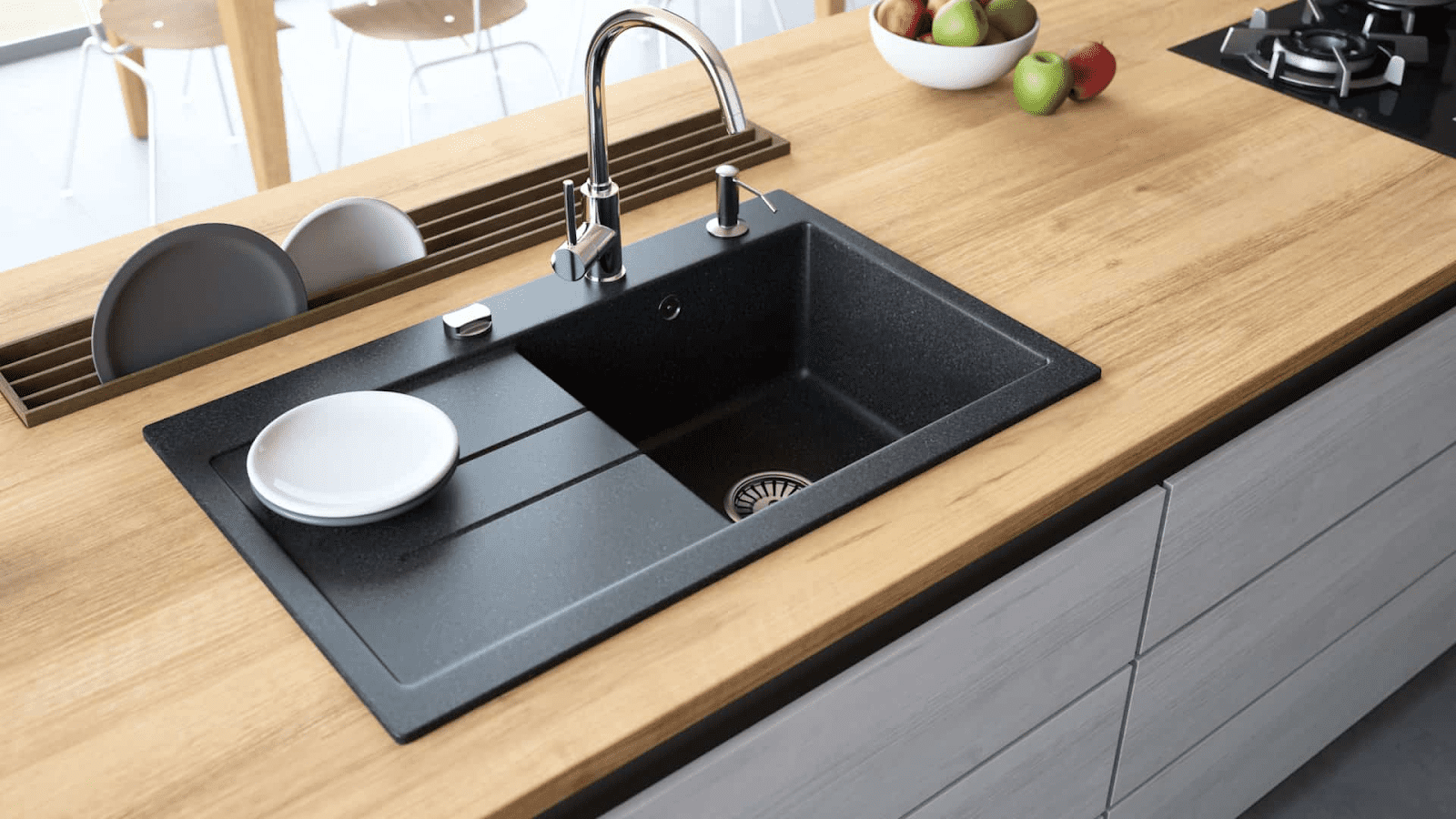
Things to Avoid on A Granite Sink
Before looking at the cleaning methods, let us understand what not to use on granite sinks. While granite is durable, it is delicate and sensitive. Hence, you should use only chemical-free products on your granite composite sink.
Listed here are a few things you should avoid using on granite.
- Abrasive materials -scouring or scrubbing pad detergents, abrasive brushes, sponges, etc.
- Strong or harsh chemicals -lemon juice, ammonia, bleach, etc.
- Alcohol, acids, gasoline.
- Do not place pots, pans, or other hot objects (above 280° C) on the sink as it may damage the granite.
Different Ways to Clean a Granite Sink
Granite sinks may seem difficult to clean.
Why?
Because of its porous and delicate nature.
Hence, it is advisable to clean a granite composite sink using mild dish soap regularly.
Now, let us explore different methods that are safe as well as effective on granite sinks. The below-given techniques are safe and effective against different stains on your composite granite sink.
For Hard Water Stains
Hard water stains, in particular, are tough to clean. It is best to remove these watermarks as soon as they appear because if left too long, they may become permanent.
Yet, if they are persistent, use the following methods to get rid of them.
Baking Soda
Baking soda is non-toxic, mild abrasive powder ideal for removing hard water stains from kitchen granite sinks.
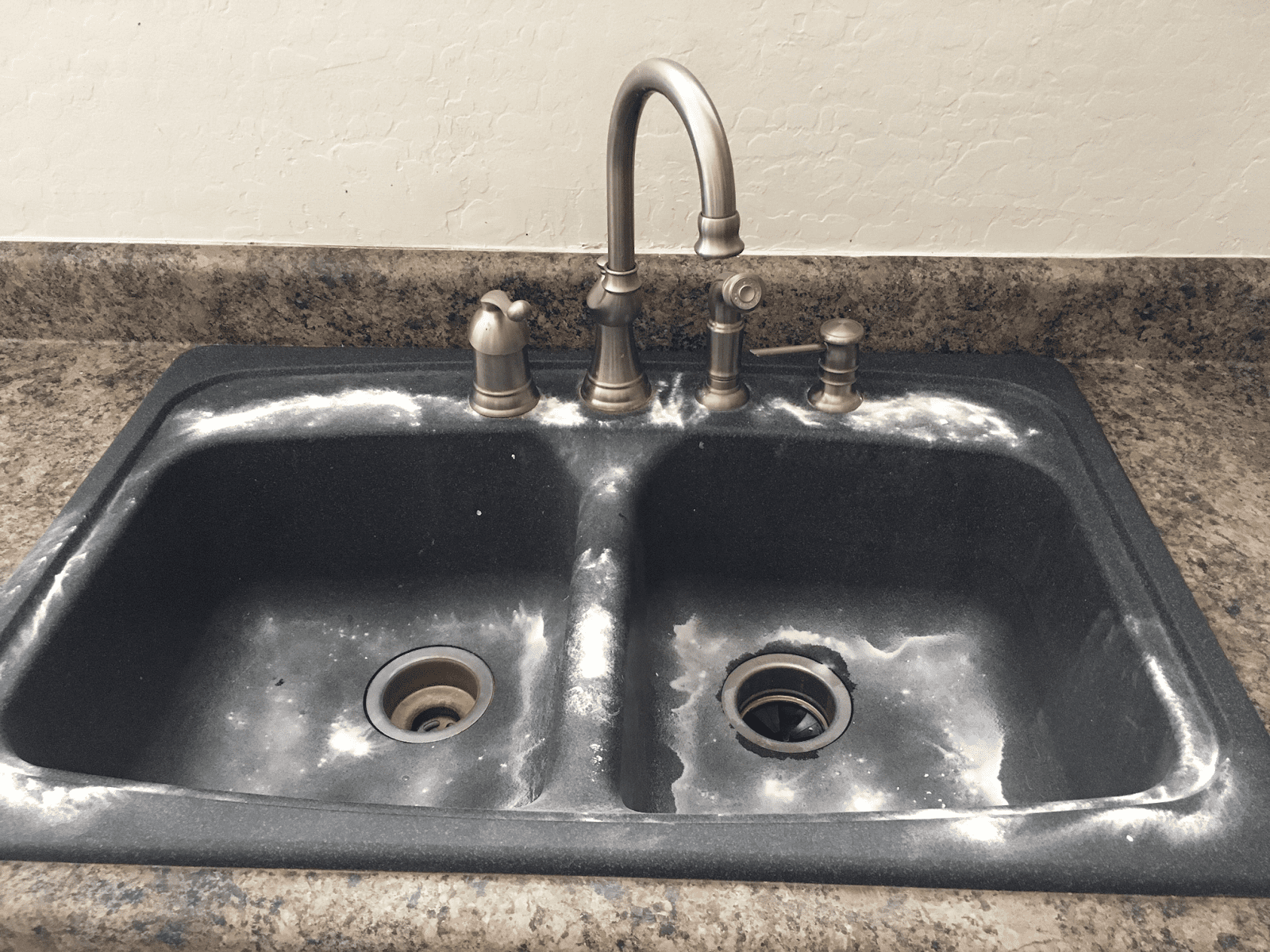
To remove hard water and deposits from granite sinks,
- Sprinkle baking soda generously over the kitchen sink.
- Pour hot water, into a spray bottle.
- Spray the hot water all over the layer of baking soda and dampen the baking soda.
- Scrub the sink with a soft brush.
- Rinse the sink thoroughly with clean water and dry the sink with a soft cloth.
Caution: The water should be hot and not boiling.
Poultice
Another way to remove hard water stains is using poultice, an anti-inflammatory paste. Even though this paste eliminates water deposits, it is a time-consuming process.
To make this method work,
- Learn how to make a homemade poultice of peanut-butter consistency.
- Form a thick paste by combining flour and hydrogen peroxide in a bowl/container. This paste is poultice.
- Now, directly apply the paste to the stains.
- Cover and tape a plastic wrap over the stains.
- Wait 24 hours for the paste to completely dry.
- Remove the paste with a wet cloth after 24 hours
- Rinse the sink with water and dry the sink.
Talc
Talc, a mineral powder, also works like a charm to clean stubborn limescale deposits.
While using Talc powder,
- Fill hydrogen peroxide into a spray bottle.
- Drizzle the talc powder covering the stained surface entirely.
- Now, spray the hydrogen peroxide over the talc.
- Using a soft cloth, in circular motions, scrub the stain away.
- Wash the surface with warm water, and with a soft towel, dry the sink.
NOTE: Always wipe the bleach thoroughly from the sink.
Rubbing Alcohol
For regular cleaning, rubbing alcohol is a wise choice to get rid of water deposits. Rubbing alcohol is safe to use on granite sinks, bathtubs, and countertops.
- Spray the solution in a spray bottle with water and rubbing alcohol in an equal ratio.
- Mix the liquids well and spray them directly over the hard water stains.
- Make sure to scrub the stain gently with a soft bristle brush.
- Once done, wash the sink with water and dry with a soft cloth.
Caution: Only when daily cleaning isn’t practical, the severe methods should always be your last choice on granite.
For Cracks, Scratches
Remove and repair scratches with the following method.
Sandpaper
Even though sandpaper is suggested for removing scratches from a granite sink, it should not be your first choice.
Caution: When using sandpaper, there is always a chance of scratching and damaging the granite even more than it already is.
To repair and remove minor scratches from your granite sinks,
- Firstly, wash the sink using warm water and dishwashing detergent.
- Put moderate pressure when cleaning with this solution. With this, some scratches mighty disappear.
- Next, sand the scratches or cracks of your sink with fine sandpaper or steel wool pad in circular motions.
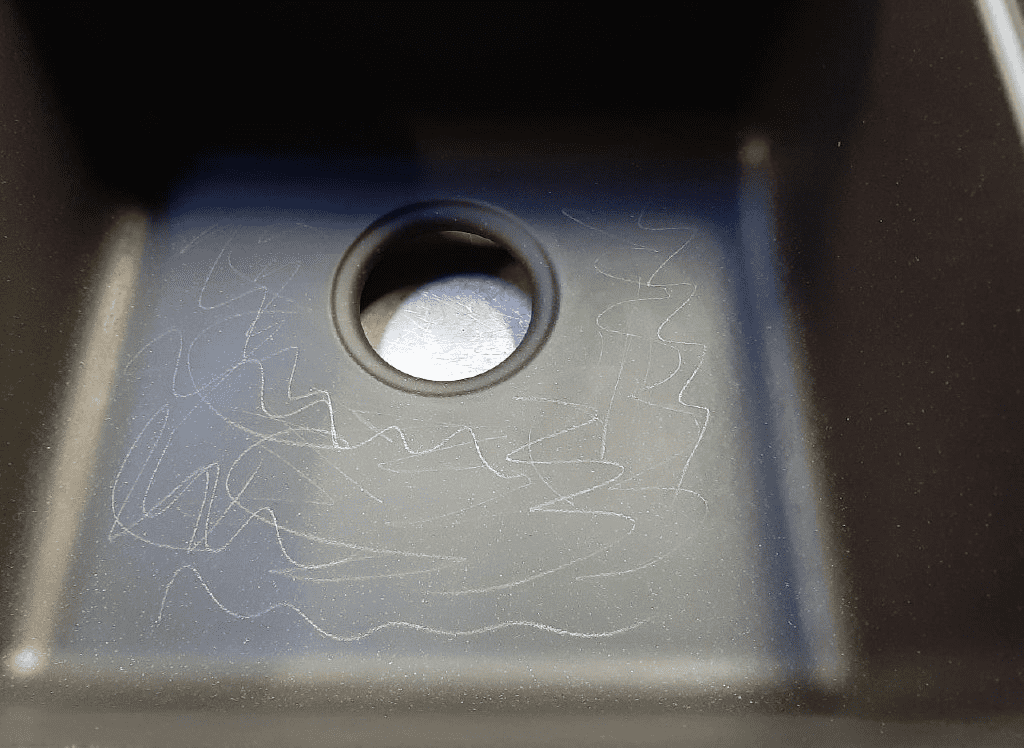
The above method will repair the scratches, yet, if you still see any scratches,
- Use a fine grit diamond sanding paper.
- Wet the surface with the stone polish you want to sand.
- Sand the scratched area with the diamond sanding paper until it smoothes the scratch.
- And, the scratches will disappear.
Tip: You can use 220-240 grit sandpaper to remove the scratches from granite without damaging the sink.
For Other Tough Stains, Buildups, Mineral Deposits
White Vinegar
White vinegar is a good alternative for vinegar while cleaning granite composite sinks. It has less acetic acid that helps in removing stubborn stains from granite.
To start with,
- Combine white vinegar(50%) and water (50%) in a spray bottle.
- Spray the entire sink with this mixture.
- Gently scrub the whole sink using a soft cloth.
- Wash away the mixture thoroughly and rinse the sink.
- Use a soft cloth to dry the sink
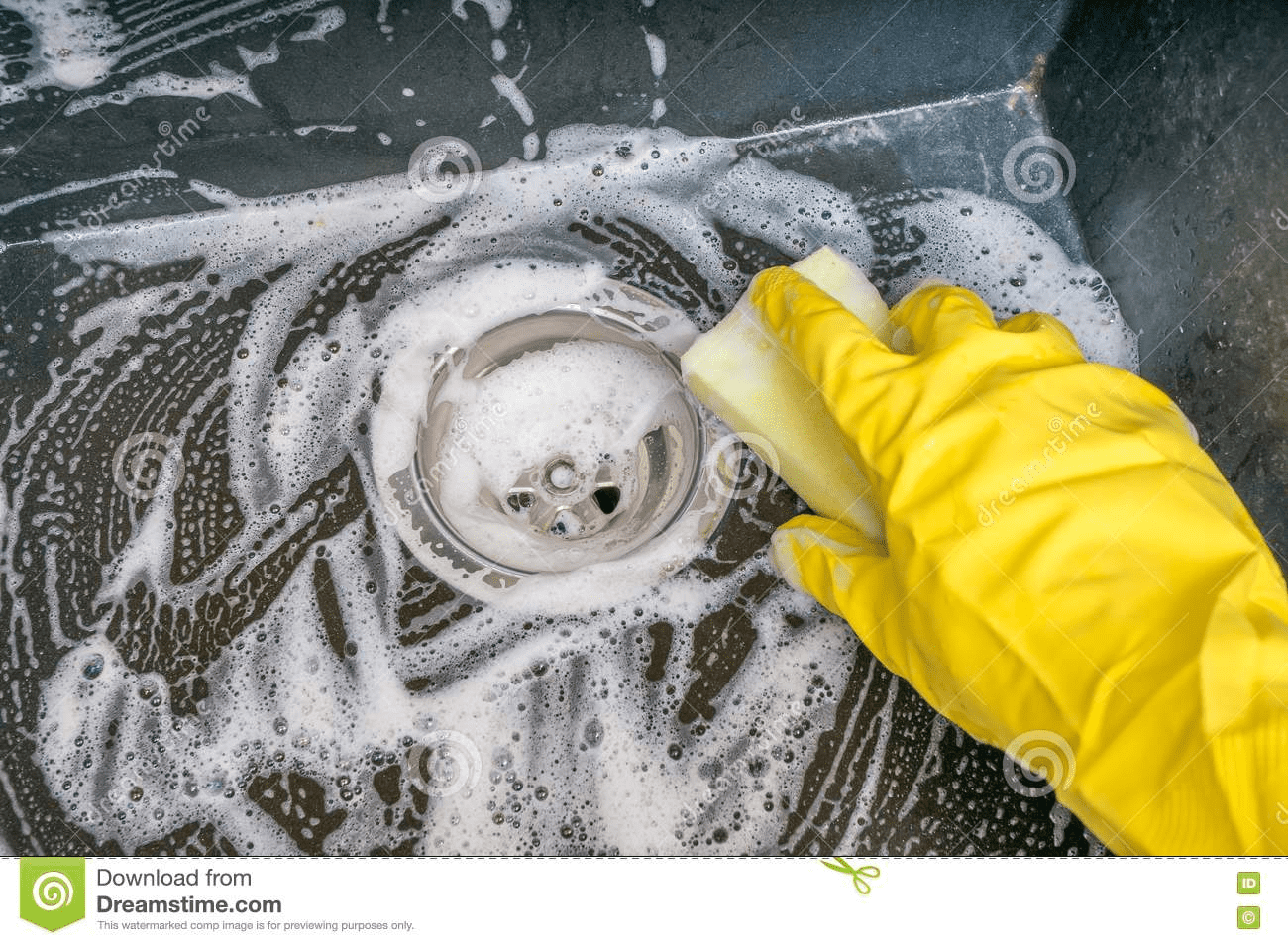
Caution: Do not leave white vinegar sitting on the sink. Wipe it immediately after cleaning.
Baking Soda and White Vinegar
If the stains persist, try using baking soda with vinegar.
To begin,
- Sprinkle baking soda all over the sink.
- Next make a spray bottle of white vinegar
- Now, spray the vinegar over the baking soda.
- Using a soft brush, gently scrub the mixture.
- Dry the sink with a soft cloth after it has been washed thoroughly.
Whiting Powder and Hydrogen Peroxide
To remove hard stains from granite,
- Start by mixing whiting powder and hydrogen peroxide, according to the instructions given on the whiting powder.
- A thick layer of paste should be applied to the stain.
- Place plastic wrap over the paste.
- For best results, allow the paste to sit for about 24 to 48 hours
- Now, wipe away the paste by removing the plastic wrap.
- Use a soft cloth to dry the sink after rinsing
Tip: Ensure to rinse away the products you are using to clean a granite composite sink to prevent further damage.
Make Your Own Cleaning and Sealing Solution
If you don’t want to use online products to clean and seal your granite composite sink, create them at your home. This solution will help avoid stubborn stains and act as a sealing agent.
To make this natural cleaner,
- Take 2 cups of baking soda and 10 drops of lemon oil and clove oil each.
- Combine the oils with baking soda and stir.
- Now, wet the sink and apply the solution over the sink.
- Then, use castile soap over the solution and start scrubbing.
- Following a thorough cleaning of the sink, use a microfiber cloth to dry.
You’ll see that after cleaning with this natural solution, you will have a cleaned as well as a sealed granite sink.
For Deep Cleaning
The methods discussed above are for particular stains and scratches. However, your sinks need a deep cleaning to keep the sink shining and fresh.
As granite is delicate, Supreme Surface has come forward and formulated a pack of stone care products for surfaces like granite, marble, and quartz.
The pack consists of:
- Scum and mineral deposit remover.
- Granite, marble, and quartz treatment with ioSeal.
You can use products designed by Supreme Surface to help you maintain and make your granite composite sinks look new as ever.
Restore Your Granite Sinks
After cleaning your granite composite sink with any method, ensure that you oil the sink. You can use any of the following oils to restore the shine of your granite after washing, scrubbing, and drying the sink.
- Mineral oil
- Coconut oil
- Olive oil
- Any food-grade oil
Tip: Mineral oil is most recommended because it does not go rancid, unlike the other oils.
To use these oils,
- Only after drying the sink, apply the oil thoroughly to the sink.
- Let it sit for some hours or overnight.
- Wipe away the oil from the sink with a soft cloth or paper towel.
- You will see the shine and radiance has returned to the sink after all the treatment it has gone through.
(UPDATE)Cleaning, and Maintaining, a granite composite sink. {3Years Later}
![Granite Vs. Marble Vs. Quartz Countertops [12 Differences+Pros & Cons] Granite Vs. Marble Vs. Quartz Countertops [12 Differences+Pros & Cons]](https://houseadorable.com/wp-content/uploads/2022/03/quartz-marble.jpg)
![How to Clean a Composite Sink? [Stain & Scuff+Routine Cleaning] How to Clean a Composite Sink? [Stain & Scuff+Routine Cleaning]](https://houseadorable.com/wp-content/uploads/2022/01/clean-composite-sink.jpg)
![Granite vs. Laminate Countertop [Pros and Cons+10 Key Differences] Granite vs. Laminate Countertop [Pros and Cons+10 Key Differences]](https://houseadorable.com/wp-content/uploads/2022/03/Granite-vs.-Laminate.jpg)
![What Are Kitchen Sinks Made Of ? [13 Types+Pros & Cons] What Are Kitchen Sinks Made Of ? [13 Types+Pros & Cons]](https://houseadorable.com/wp-content/uploads/2022/01/Sink-MAterial.jpg)
![Granite vs. Quartz Countertops [Pros & Cons+6 Key Differences] Granite vs. Quartz Countertops [Pros & Cons+6 Key Differences]](https://houseadorable.com/wp-content/uploads/2022/01/Copy-of-HouseAdorable.com-1.jpg)

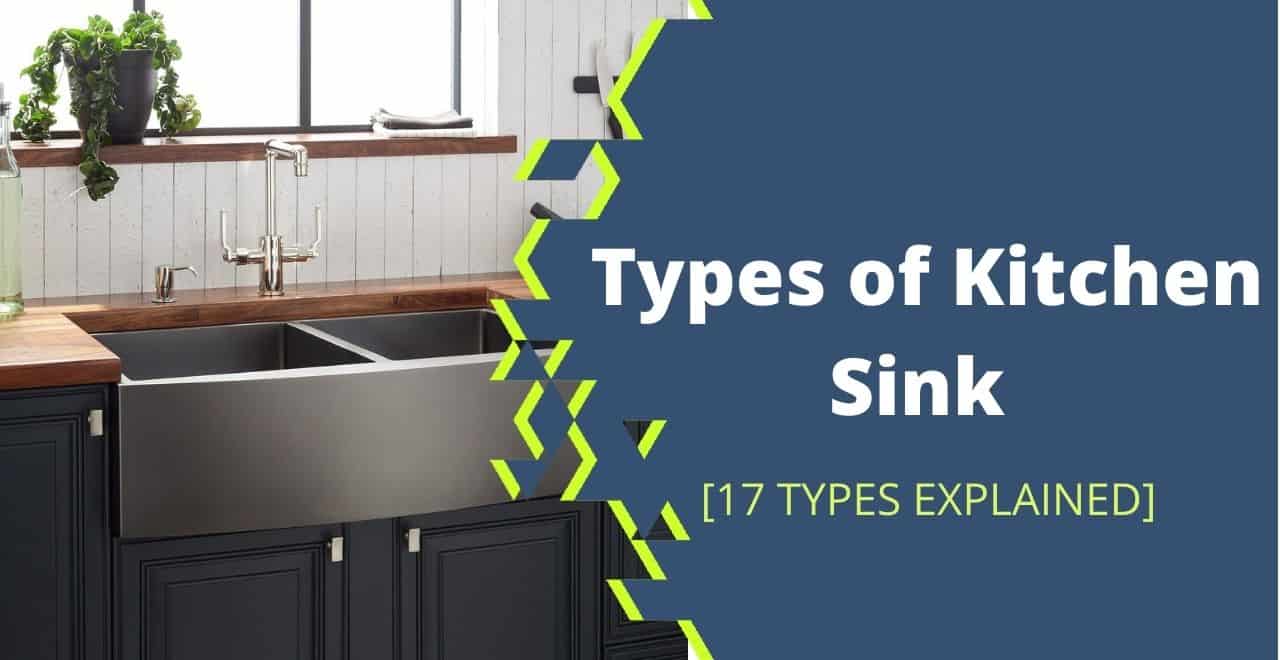
![16 Types of Kitchen Cabinet Finishes [Features + Pros & Cons] 16 Types of Kitchen Cabinet Finishes [Features + Pros & Cons]](https://houseadorable.com/wp-content/uploads/2022/10/cabinet-finish.jpg)